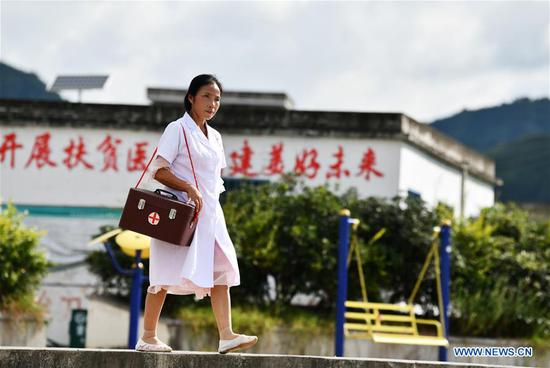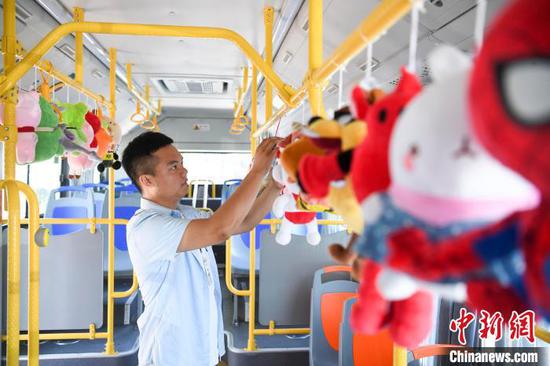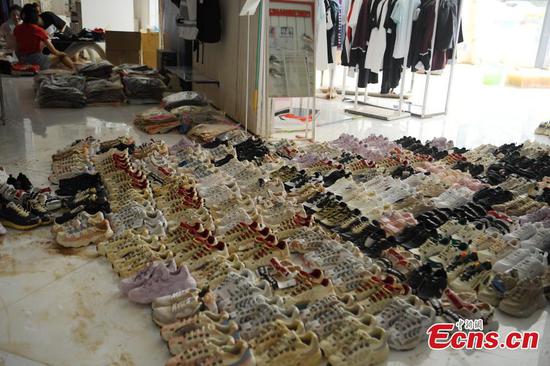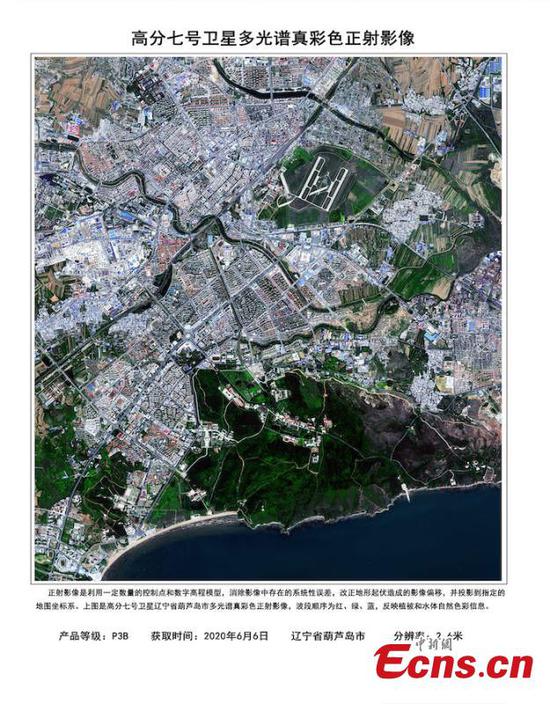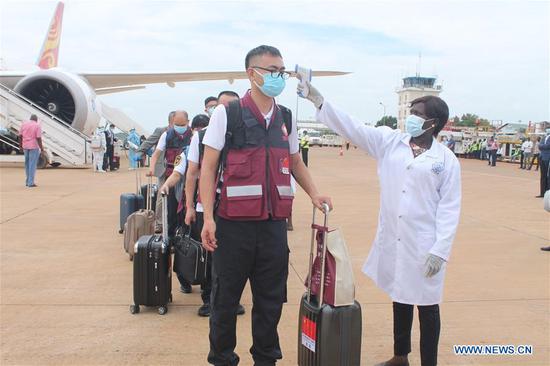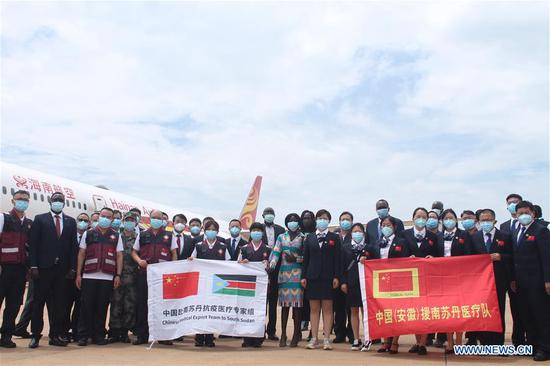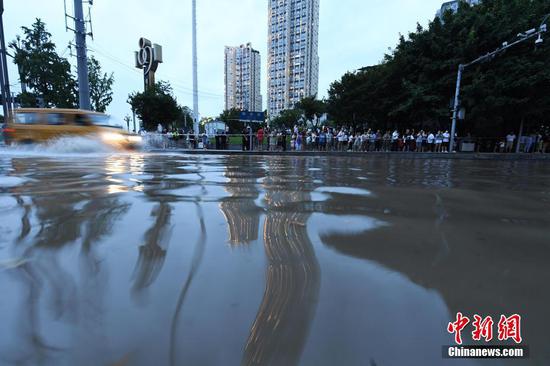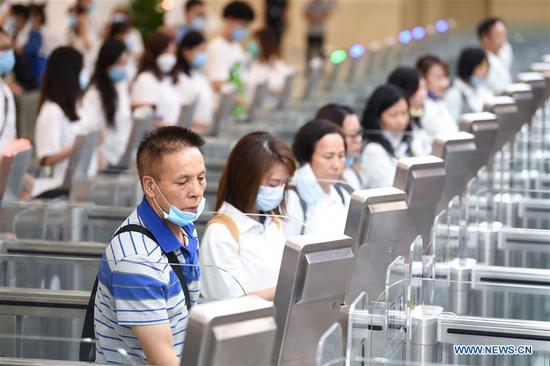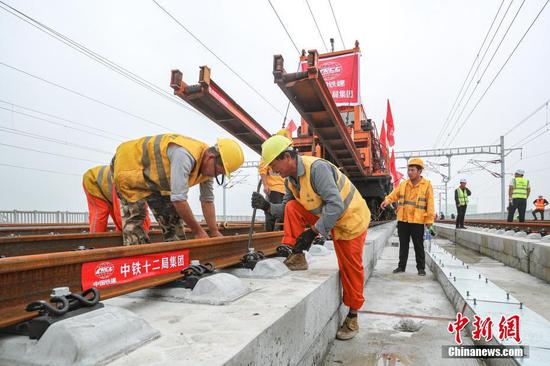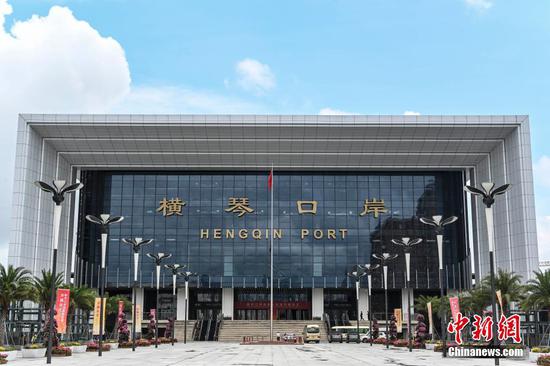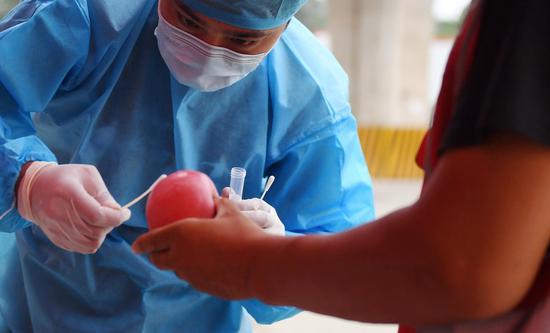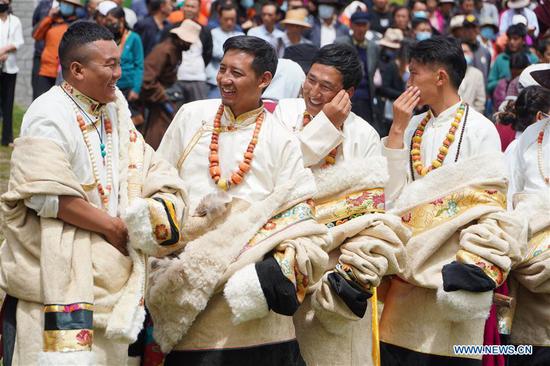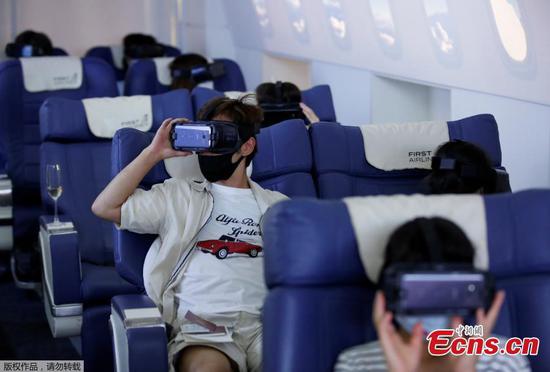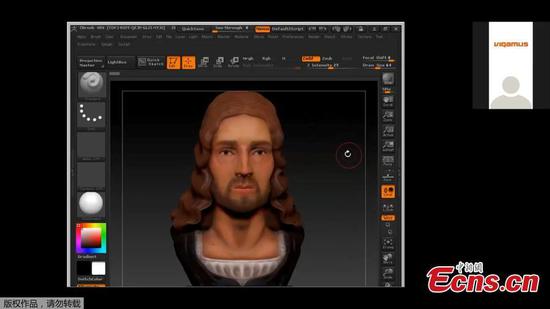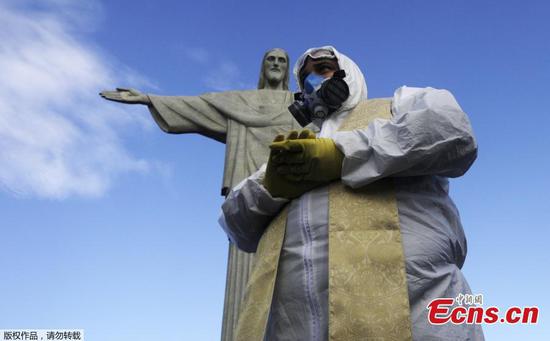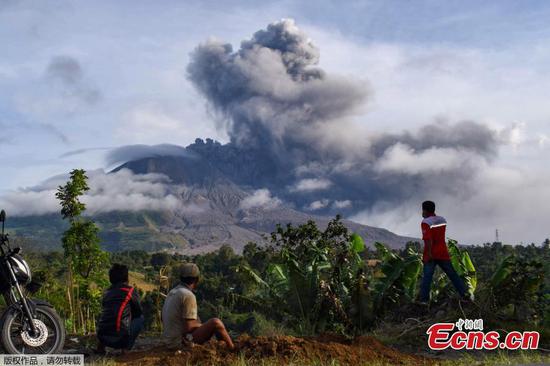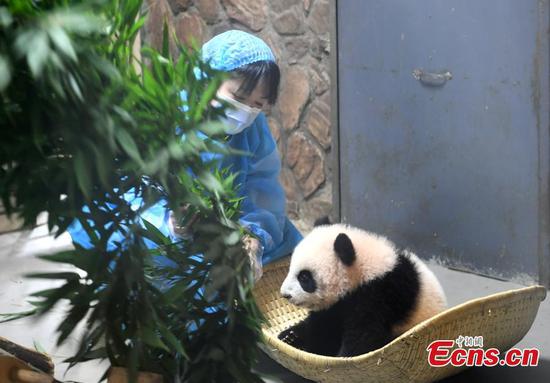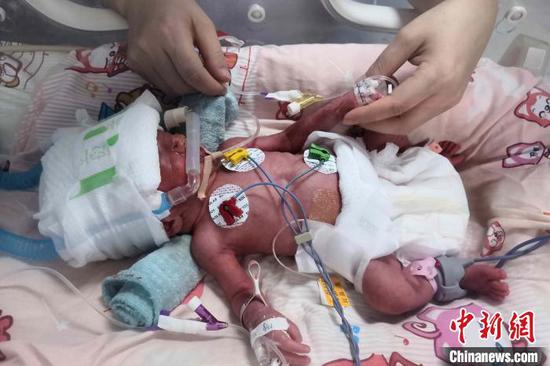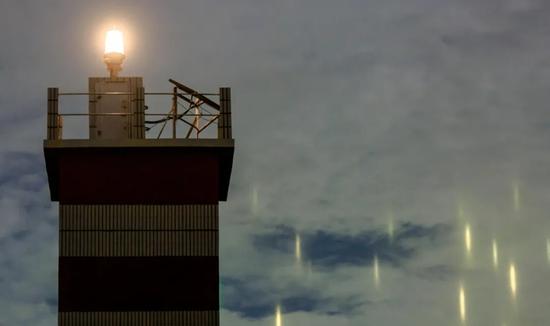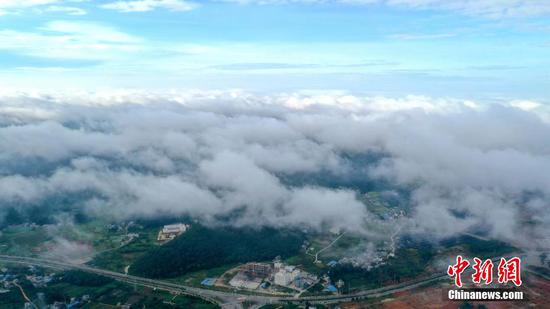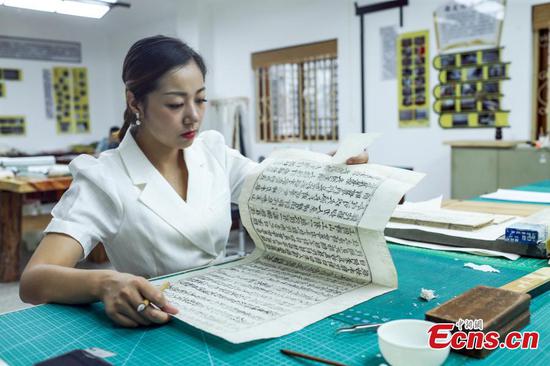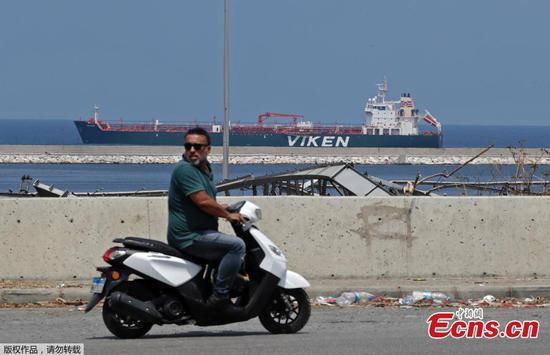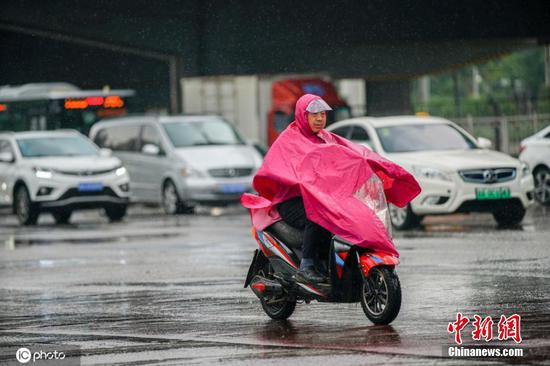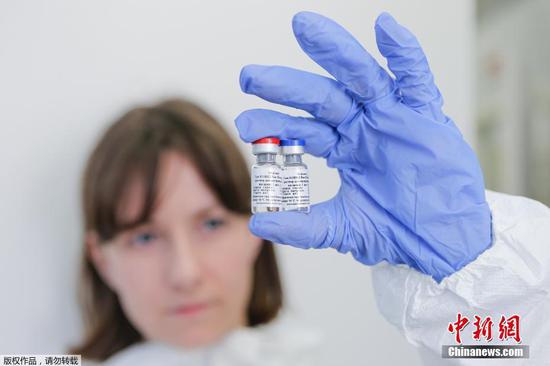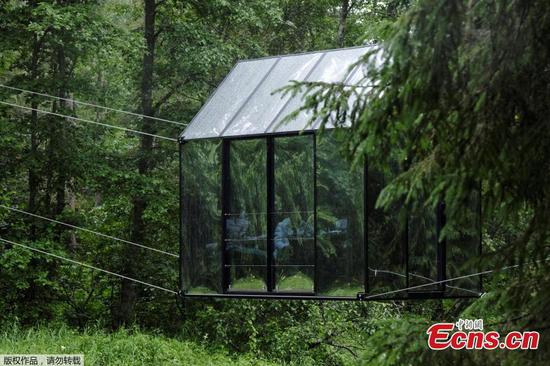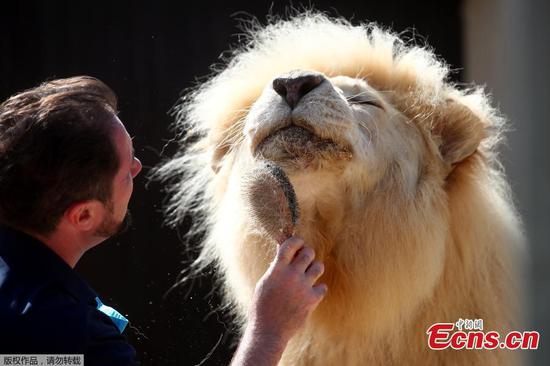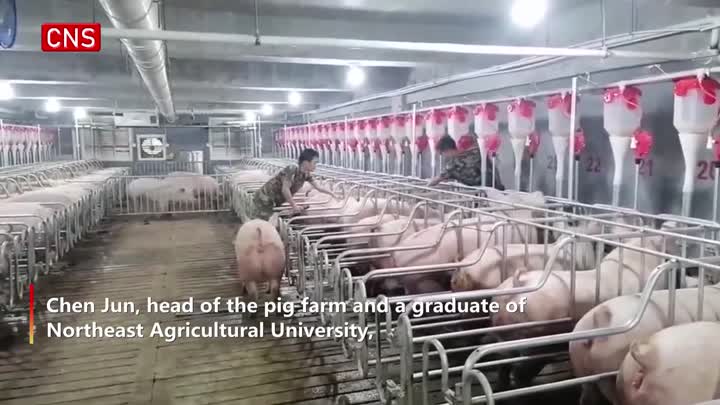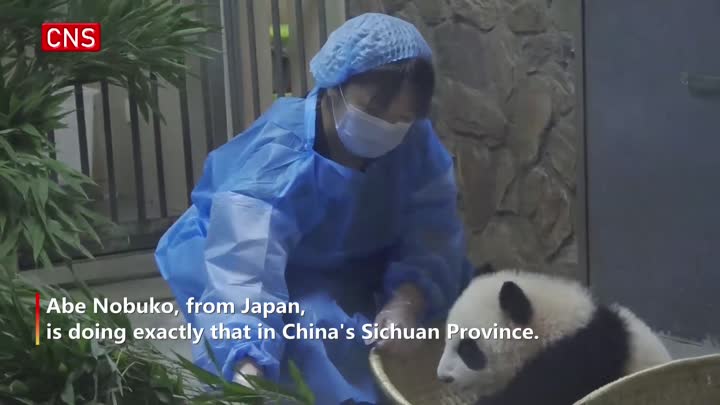
Chik drops off a package containing testing kits to a care home in Tai Po on Aug 18, 2020. [Photo by Parker Zheng/China Daily]
Hong Kong's complex terrain is another complicating factor. Locating the addresses of buildings in this mountainous city is akin to solving a Rubik's cube. Chik sometimes had to climb several floors and walk through shopping malls to find a care home on the list. To make matters worse, often when she returned to where she had been dropped off, the van was on another street - in some spots vehicles were only allowed to drop off passengers, but could not park for long.
On Tuesday, when she tried to enter a building containing a nursing home, the residential manager rejected her registration form signed in English and asked her to fill it out in Chinese. This posed a new challenge.
Despite all the hardships - lack of sleep or any personal life, disorientation after wandering through unfamiliar streets, and having to decipher Chinese characters she seldom learned while growing up - Chik responded with, "I've lost weight," a remark as light-hearted as it was serious.
She noted that she had received far more help than she expected from others. She believes that Hong Kong used to be a place where people mind their own business. But residents now appear to be friendly, helpful and appreciative of the work that is being done to help them.
"I think it's very rare to have this kind of connection that we're all battling the same thing together," Chik said.
The projects also provided a chance over the past month for relatively unsociable lab researchers to reach out to nurses, drivers, care home staff, and government agencies.
Chik used to believe that Hong Kong government officials worked only regular office hours. But the officials in charge of the community testing have been working late into the night and at weekends to make arrangements, she said.
"I think that in light of this pandemic, people are working day and night to make things happen," she said.
Yiu, the driver who delivers the kits with Chik, shares her enthusiasm.
Yiu, 32, used to be a builder for interior decorators before becoming a cargo driver a year ago after the protest movement affected his old business.
"When the Sunrise Diagnostic Centre reached out to our company (to transport the kits and samples), everyone jumped at it," Yiu said. To make sure the project went smoothly, his company sent 20 vans on the first day, twice as many as the diagnostic center needed.
"Of course, there were people feeling scared about the samples, since no one knew if one contained the virus. But most of us see this as chance to do something for Hong Kong, for our city," Yiu said.









